Are you planning to buy a house in Singapore? One of the most crucial factors you need to consider is the downpayment. A downpayment is the amount you pay upfront when purchasing a property. It is usually a percentage of the property’s purchase price and can range from 5% to 25%. In Singapore, the downpayment requirement varies depending on the type of property you want to buy and your eligibility.
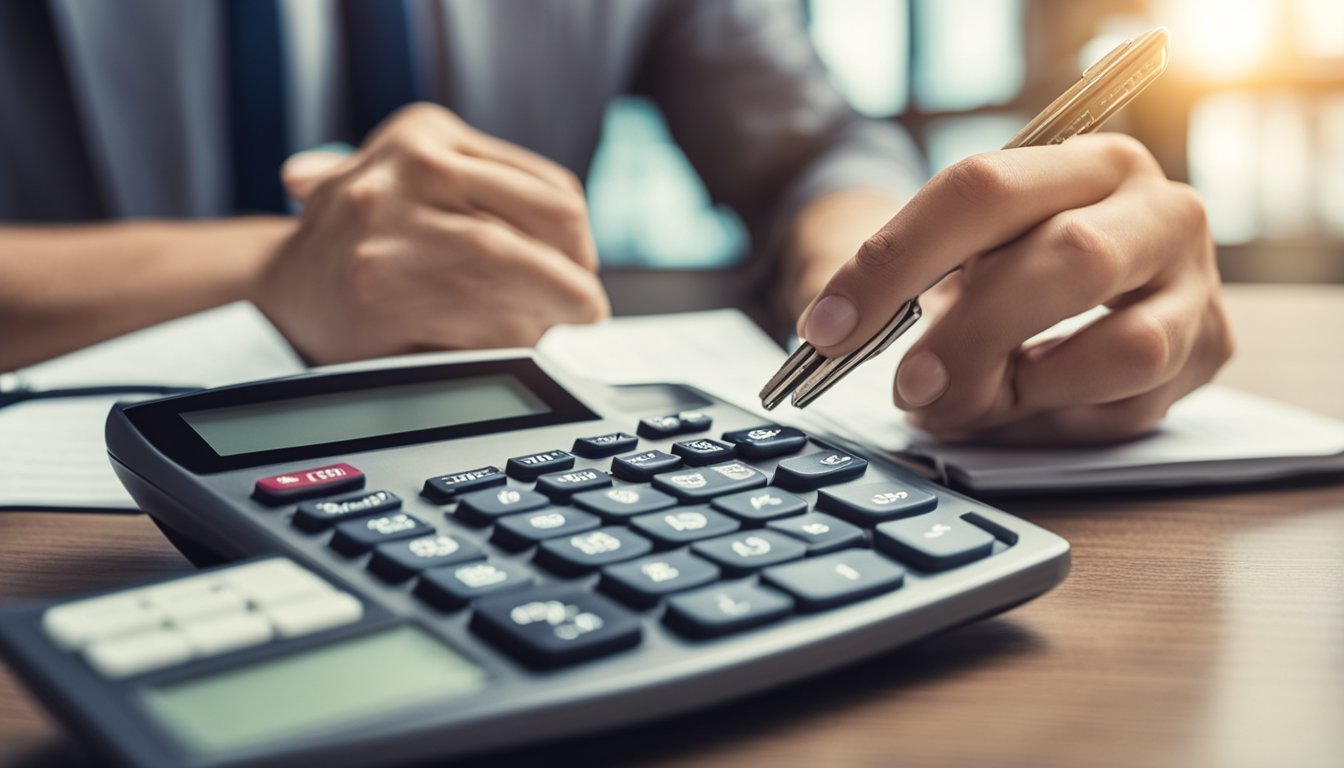
Understanding downpayments in Singapore is essential to help you plan your finances and avoid any surprises during the home buying process. Knowing the downpayment requirements for different types of properties and the financing options available can help you make an informed decision. In this article, we will provide you with a comprehensive guide on how much you need to pay as a downpayment when buying a house in Singapore, the financing options available, additional costs and fees, and other important considerations.
Key Takeaways
- Understanding downpayments in Singapore is crucial when planning to buy a house.
- The downpayment requirement varies depending on the type of property and your eligibility.
- Knowing the financing options available and additional costs and fees can help you make an informed decision.
Understanding Downpayments in Singapore
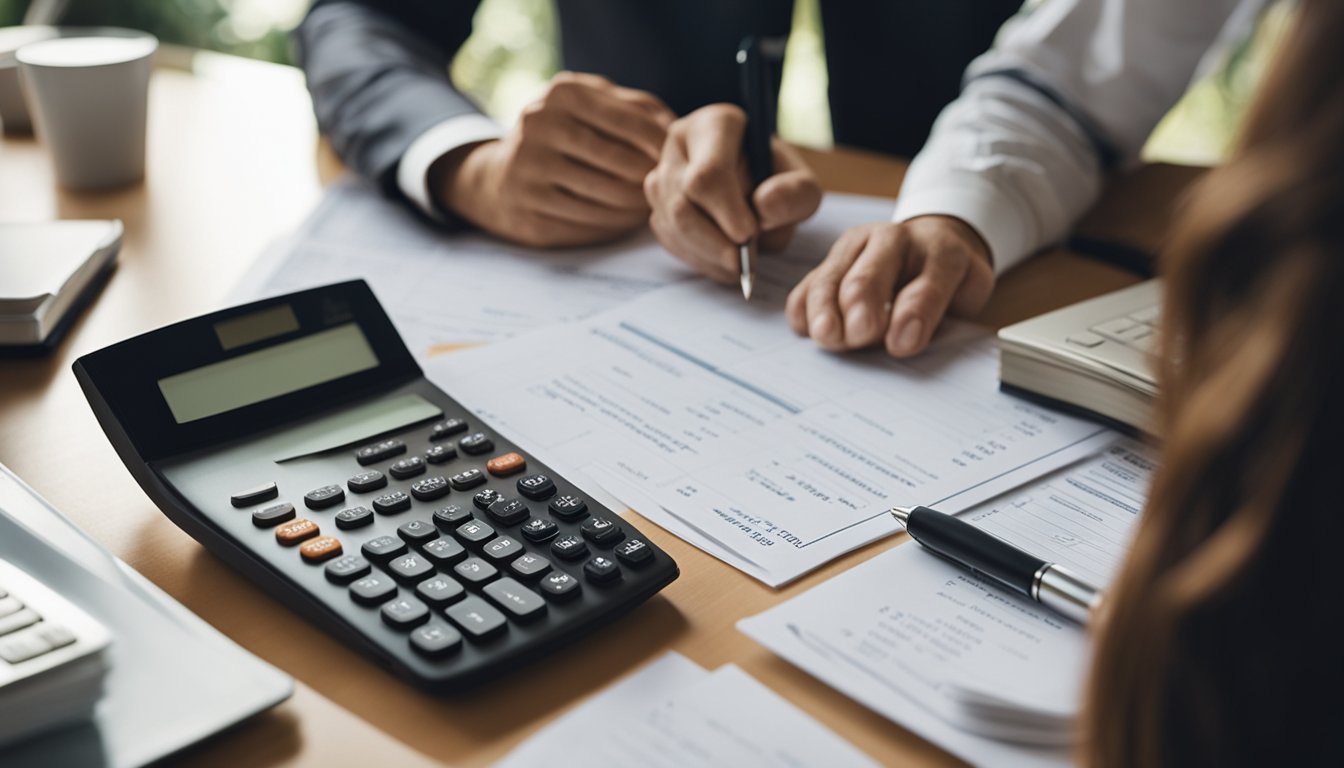
If you’re planning to purchase a house in Singapore, you need to have a good understanding of downpayments. A downpayment is a percentage of the property’s purchase price that you need to pay upfront. In Singapore, the downpayment amount varies depending on the type of property you’re buying and the loan-to-value (LTV) ratio.
When you’re buying a house in Singapore, you need to pay a minimum cash downpayment, which is a percentage of the purchase price that you need to pay in cash. The minimum cash downpayment is calculated based on the LTV ratio. For example, if the LTV ratio is 80%, the minimum cash downpayment is 20% of the purchase price.
The LTV ratio is the amount of the loan you’re taking compared to the purchase price of the property. For example, if you’re taking a loan of $800,000 for a property that costs $1,000,000, the LTV ratio is 80%.
It’s important to note that the minimum cash downpayment is not the same as the total downpayment. The total downpayment is the sum of the minimum cash downpayment and the rest of the downpayment, which can be paid using your Central Provident Fund (CPF) savings or cash.
In Singapore, the downpayment for a house is typically 25% of the total purchase price, with a minimum of 5% of the purchase price required to be paid in cash. This means that if you’re buying a house that costs $1,000,000, you need to pay a downpayment of at least $50,000 in cash.
In summary, understanding downpayments in Singapore is crucial when you’re planning to purchase a property. You need to have a good understanding of the minimum cash downpayment, the LTV ratio, and the total downpayment. It’s important to plan your finances carefully to ensure that you can afford the downpayment and the monthly mortgage payments.
Types of Properties and Downpayment Requirements
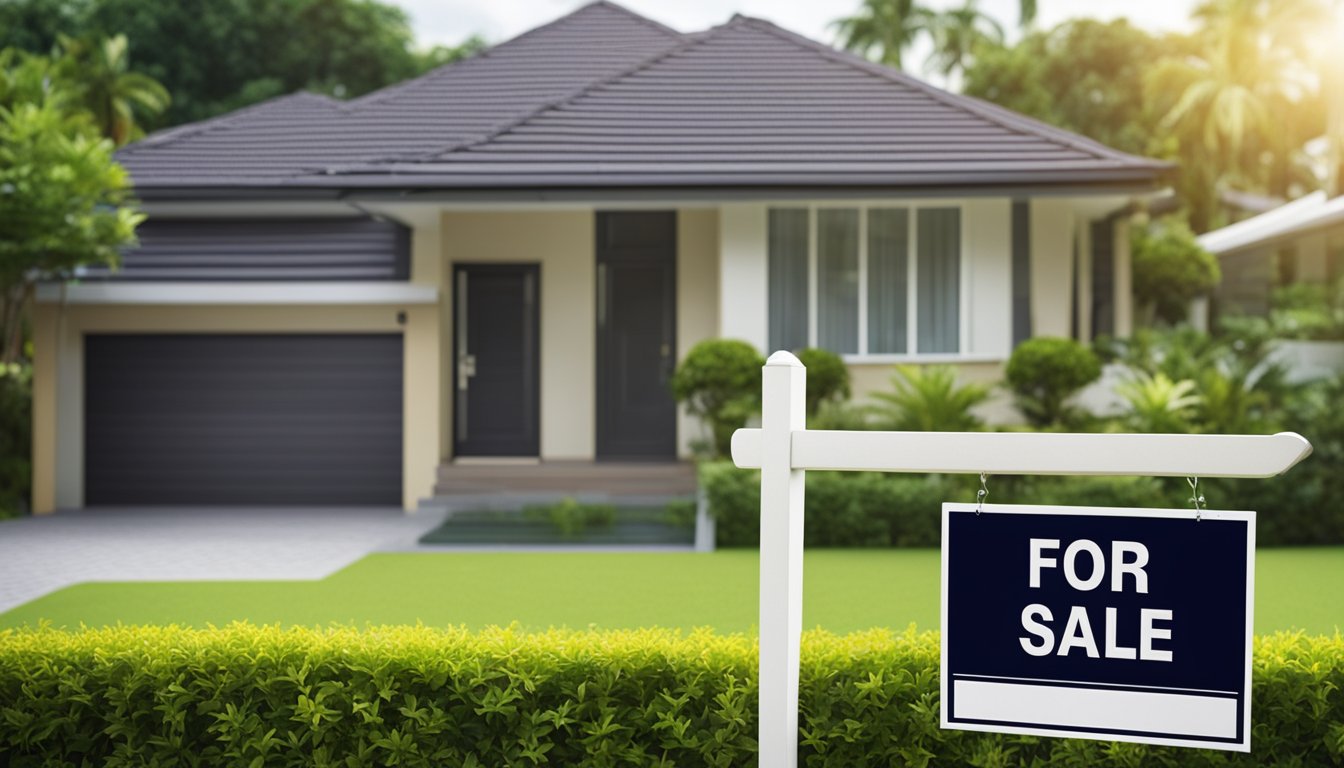
If you’re planning to buy a property in Singapore, it’s important to know the downpayment requirements for different types of properties. The downpayment amount varies depending on the type of property and whether you’re taking an HDB loan or a bank loan.
HDB Flats
If you’re buying an HDB flat, the downpayment amount depends on the loan type you’re taking. For an HDB loan, the downpayment is 10% of the purchase price or valuation, whichever is lower. For a bank loan, the downpayment is 5% of the purchase price or valuation, whichever is lower.
Private Properties
For private properties, the downpayment amount is higher compared to HDB flats. The minimum downpayment is 25% of the property value if you’re taking a bank loan. However, if you’re taking an HDB loan to buy a private property, the minimum downpayment is 5% of the purchase price or valuation, whichever is lower.
Executive Condominiums
Executive Condominiums (ECs) are a type of hybrid public-private housing in Singapore. The downpayment requirements for ECs are different from HDB flats and private properties. If you’re taking an HDB loan to buy an EC, the downpayment is 5% of the purchase price or valuation, whichever is lower. For a bank loan, the downpayment is 25% of the property value.
It’s important to note that the downpayment requirements for different types of properties can change over time. Therefore, it’s always a good idea to check with your bank or financial institution for the latest information on downpayment requirements.
In conclusion, understanding the downpayment requirements for different types of properties is crucial when buying a property in Singapore. By knowing the minimum downpayment amount, you can plan your finances better and avoid any surprises during the buying process.
Financing Your Home Purchase

Buying a house in Singapore is a significant financial investment. It is essential to understand the various financing options available to make an informed decision. Here are some ways you can finance your home purchase:
HDB Loans
If you are buying an HDB flat, you can apply for an HDB loan. The HDB loan has a fixed interest rate, which means you don’t have to worry about fluctuations in interest rates. The loan-to-value ratio (LTV) for HDB loans is up to 90%, which means you can borrow up to 90% of the purchase price of the flat. The downpayment for an HDB loan is 10% of the purchase price.
Bank Loans
If you are not eligible for an HDB loan or prefer to take a bank loan, you can apply for a property loan from a bank. There are two types of interest rates for bank loans – fixed and floating. A fixed interest rate means that the interest rate remains the same throughout the loan period, while a floating interest rate means that the interest rate can fluctuate depending on market conditions.
The LTV ratio for bank loans is up to 75%, which means you can borrow up to 75% of the purchase price of the flat. The downpayment for a bank loan is 25% of the purchase price.
CPF Usage
You can use your CPF savings to pay for the downpayment and monthly instalments of your home loan. The amount you can use depends on your CPF Ordinary Account (OA) balance and the valuation limit of the property. You can use up to 15% of your OA balance to pay for the downpayment and up to 30% for the monthly instalments.
It is important to note that using your CPF savings to pay for your home loan will affect your retirement savings. Therefore, it is essential to weigh the pros and cons before deciding to use your CPF savings.
In conclusion, there are various financing options available for buying a house in Singapore. It is crucial to understand the terms and conditions of each option before making a decision. By doing so, you can make an informed decision that suits your financial needs and goals.
Additional Costs and Fees
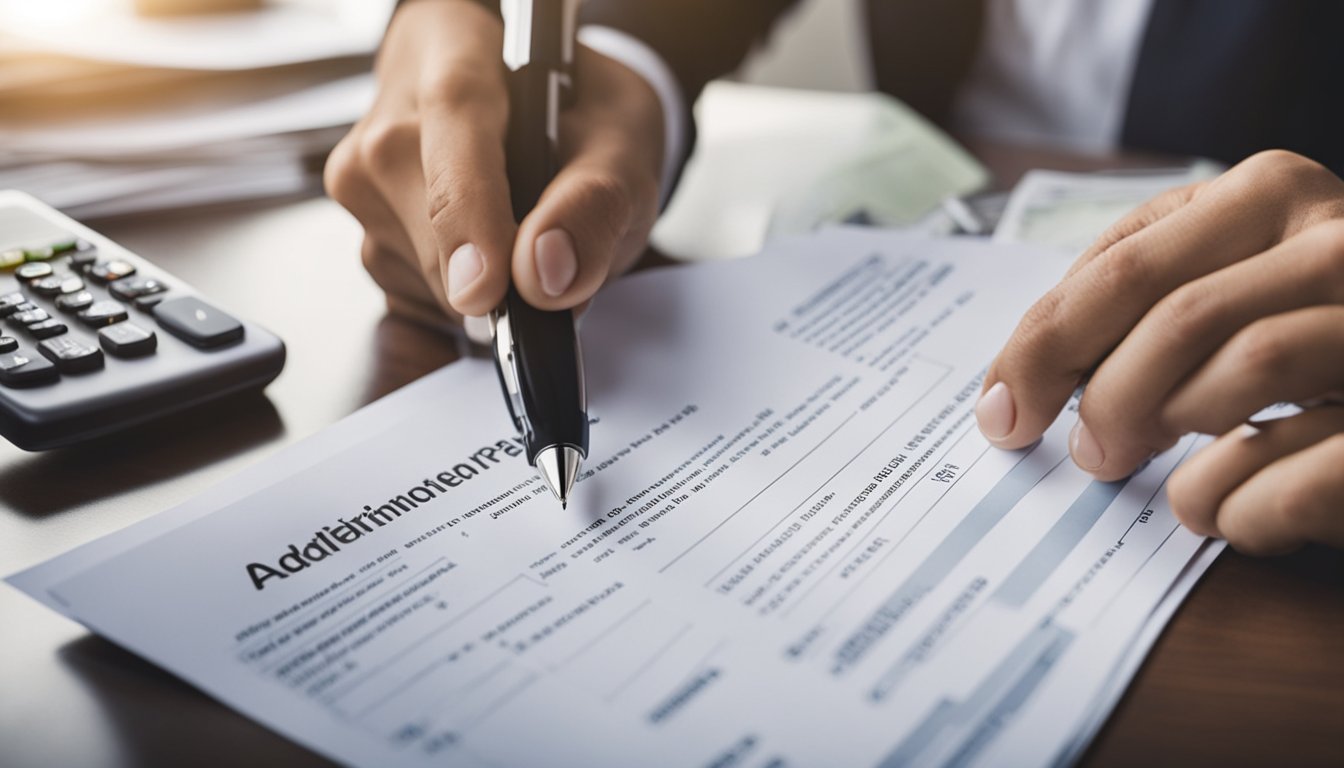
When buying a house in Singapore, the downpayment is just one of the costs you need to consider. There are several other fees and charges that you need to be aware of to avoid any surprises.
Buyer’s Stamp Duty
Buyer’s Stamp Duty (BSD) is a tax that you have to pay when you purchase a property in Singapore. The amount of BSD you have to pay depends on the purchase price of the property. The BSD rates range from 1% to 4% of the purchase price. For example, if you buy a property for SGD 1 million, you will have to pay SGD 24,600 in BSD.
Additional Buyer’s Stamp Duty
Additional Buyer’s Stamp Duty (ABSD) is a tax that you have to pay on top of the BSD if you are a Singaporean citizen or permanent resident and you already own one or more properties in Singapore. The ABSD rates range from 12% to 20% of the purchase price. For example, if you are a Singaporean citizen and you are buying a second property for SGD 1 million, you will have to pay SGD 120,000 in ABSD.
Legal Fees
You will also need to engage a lawyer to handle the legal aspects of your property purchase. The legal fees for buying a property in Singapore can range from SGD 2,500 to SGD 3,500. These fees cover the lawyer’s professional fees, disbursements, and GST.
Other Related Costs
Apart from the above fees, there are other related costs that you need to consider. These include:
- Valuation fees: You may need to pay for a professional valuation of the property, which can cost anywhere from SGD 300 to SGD 500.
- Mortgage stamp duty: If you are taking out a loan to finance your property purchase, you will need to pay a mortgage stamp duty of 0.2% of the loan amount.
- Cashier’s order: You will need to pay for a cashier’s order to make the downpayment and other payments related to your property purchase. The cost of a cashier’s order can range from SGD 10 to SGD 20.
In summary, when buying a house in Singapore, you need to consider not only the downpayment but also other fees and charges such as BSD, ABSD, legal fees, valuation fees, mortgage stamp duty, and cashier’s order fees. It is important to factor in these costs when planning your budget for your property purchase.
Eligibility and Limitations
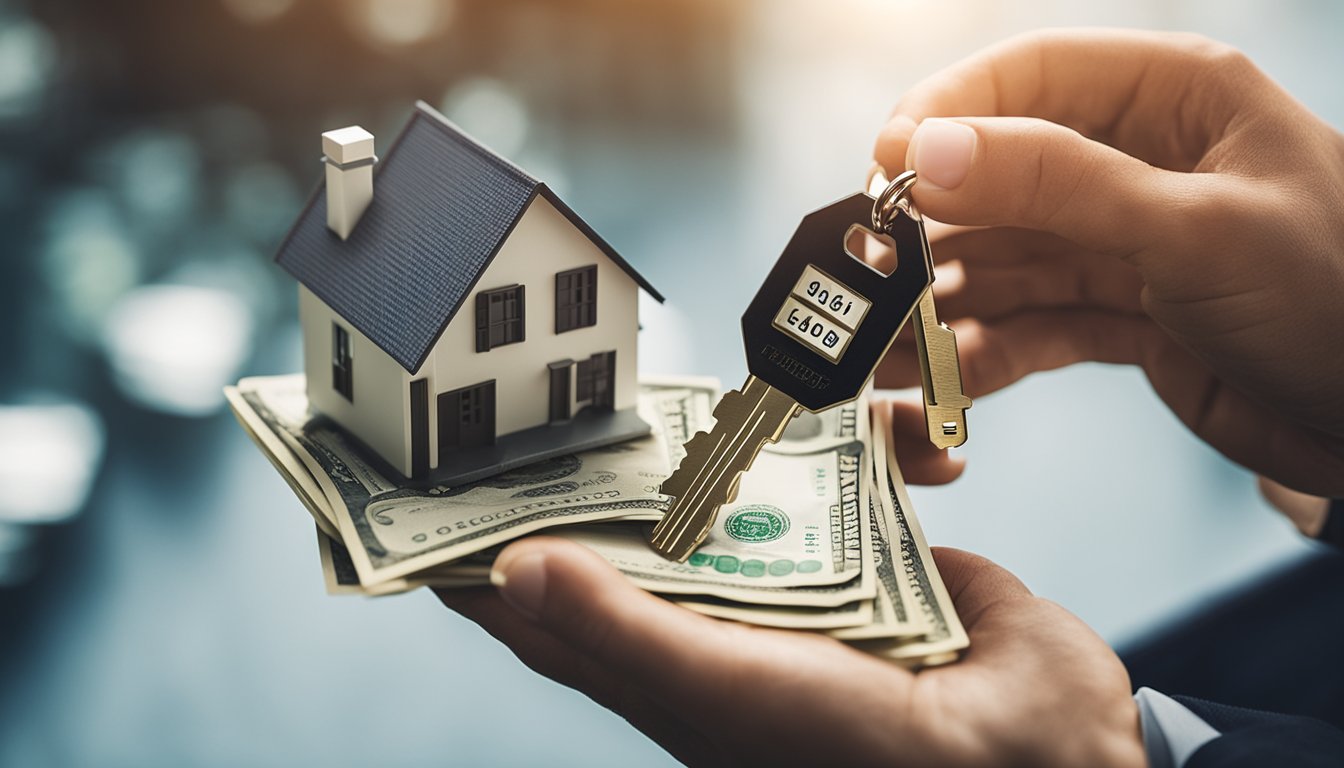
If you’re planning to purchase a house in Singapore, there are several eligibility criteria and limitations that you need to be aware of. Here are some of the most important ones:
Loan-to-Value (LTV) Limit
The Loan-to-Value (LTV) limit is the maximum amount of money that you can borrow from a bank or financial institution to purchase a property. In Singapore, the LTV limit varies depending on the type of property you’re buying. For HDB flats, the LTV limit is 90%, while for private properties, it’s 75%. This means that you’ll need to pay a downpayment of at least 10% for an HDB flat and 25% for a private property.
Total Debt Servicing Ratio
The Total Debt Servicing Ratio (TDSR) is the percentage of your income that goes towards paying off your debts, including your mortgage. In Singapore, the TDSR limit is 60%, which means that your total monthly debt obligations cannot exceed 60% of your income.
Mortgage Servicing Ratio
The Mortgage Servicing Ratio (MSR) is the percentage of your income that goes towards paying off your mortgage. In Singapore, the MSR limit is 30%, which means that your monthly mortgage payments cannot exceed 30% of your income.
Other Restrictions
In addition to the LTV, TDSR, and MSR limits, there are other restrictions that you need to be aware of when purchasing a house in Singapore. For example, if you’re purchasing an HDB flat, you need to be a Singapore citizen or permanent resident, and you cannot own any other property. If you’re purchasing a private property, you need to be a Singapore citizen, permanent resident, or a foreigner who has been granted approval to purchase a property by the Singapore Land Authority.
Overall, purchasing a house in Singapore can be a complicated process, but by understanding the eligibility criteria and limitations, you can make an informed decision and ensure that you’re able to afford your dream home.
Planning Your Finances
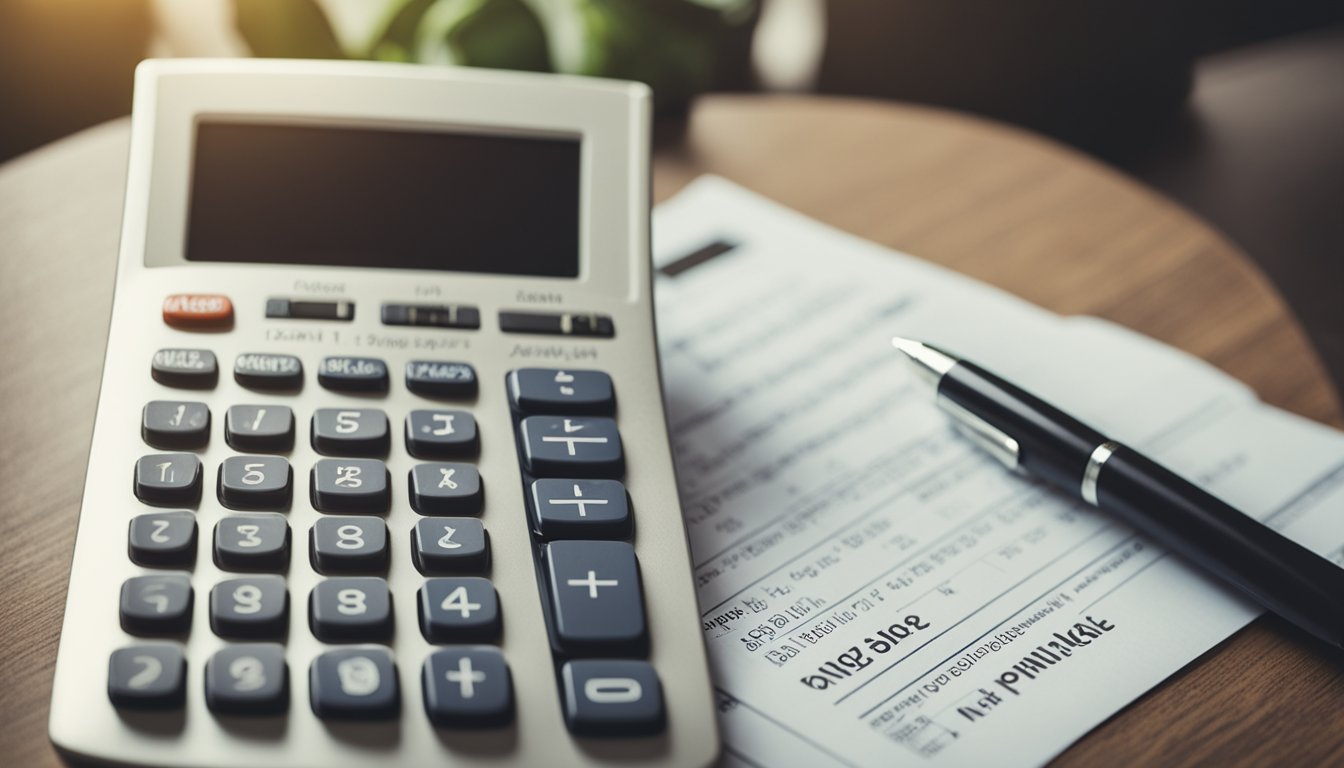
Before you start looking for a house to buy in Singapore, it is important to plan your finances. This will help you determine how much you can afford to spend on a house and how much you need to save for the downpayment. Here are some things you need to consider when planning your finances:
Assessing Your Gross Monthly Income
The first thing you need to do is assess your gross monthly income. This is your total income before any deductions are made. You need to know your gross monthly income to determine how much you can afford to spend on a house and how much you can allocate for monthly mortgage payments.
Considering Existing Debts
You also need to consider any existing debts you have, such as student loans or car loans. These debts will affect how much you can afford to spend on a house and how much you can allocate for monthly mortgage payments. You should aim to pay off as much of your existing debts as possible before you start looking for a house to buy.
CPF OA Savings and Withdrawals
Your CPF OA savings can also be used to pay for the downpayment of your house. You can withdraw up to 100% of your CPF OA savings to pay for the downpayment, stamp duty, and other related fees. However, you should be aware that withdrawing your CPF OA savings will affect your retirement savings.
To summarize, when planning your finances for buying a house in Singapore, you need to assess your gross monthly income, consider any existing debts you have, and think about your CPF OA savings and withdrawals. By doing this, you can determine how much you can afford to spend on a house and how much you need to save for the downpayment.
The Process of Buying a Home
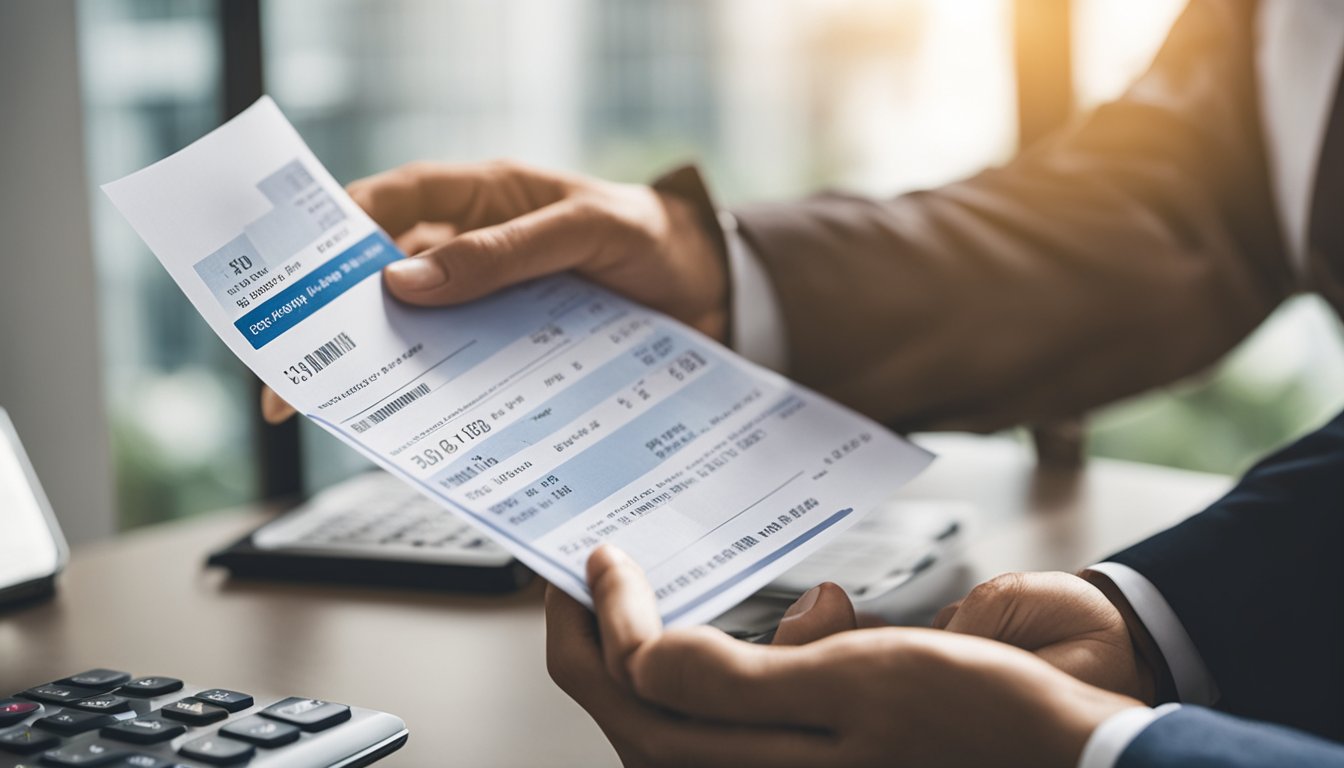
Excited to buy your own home in Singapore? The process of buying a home can be overwhelming, but with proper knowledge and preparation, it can also be an exciting and fulfilling experience. Here are the steps you need to take to make your dream of owning a home a reality.
Selecting the Right Property
The first step in buying a home is to select the right property that fits your budget, lifestyle, and needs. You can browse through various online platforms such as PropertyGuru Finance to find properties that match your criteria. You can also enlist the help of a property agent to help you find a property that suits your preferences.
When selecting a property, consider the location, size, and amenities. If you are looking for a more affordable option, you can consider a resale flat or a HDB BTO flat. Resale flats are generally cheaper than new flats, while BTO flats offer more modern amenities.
Securing a Loan
Once you have selected the property, the next step is to secure a loan. You can apply for a loan from a bank or a financial institution. The amount of loan you can get depends on various factors such as your income, credit score, and the value of the property.
To apply for a loan, you need to submit various documents such as your income statements, bank statements, and proof of identity. You can also consider getting pre-approved for a loan to know how much you can afford to spend on a property.
Completing the Purchase
After securing a loan, the next step is to complete the purchase. You need to pay a downpayment, which is a percentage of the total cost of the property. The downpayment can range from 5% to 25% depending on the type of property you are buying and the loan you have secured.
To pay the downpayment, you can use your CPF savings or make an online transfer. You also need to attend the resale completion appointment to complete the purchase. During the appointment, you need to pay the remaining amount and sign the necessary documents to transfer the ownership of the property to you.
Congratulations! You have now completed the process of buying a home in Singapore.
Demographic Considerations

If you are planning to buy a house in Singapore, the downpayment you need to make will depend on your demographic. Here are the different considerations for Singapore Citizens, Permanent Residents, and Foreigners.
Singapore Citizens
As a Singapore Citizen, you are eligible for a HDB loan if you are purchasing a HDB flat. The downpayment for a HDB loan is 10% of the purchase price. If you are purchasing a private property, the downpayment is 5% in cash and 15% can be paid using your CPF Ordinary Account. However, if you are buying a private property for the first time, you will need to pay a 20% downpayment in cash.
Permanent Residents
As a Permanent Resident, you are also eligible for a HDB loan if you are purchasing a HDB flat. The downpayment for a HDB loan is 10% of the purchase price. If you are purchasing a private property, the downpayment is 20% in cash and 5% can be paid using your CPF Ordinary Account.
Foreigners
If you are a foreigner, the downpayment for a HDB flat is 25% of the purchase price. If you are purchasing a private property, the downpayment is 25% in cash.
It is important to note that the downpayment requirements may vary depending on the property location. For example, if you are buying a property in a non-central neighbourhood, you may be required to make a higher downpayment.
In summary, the downpayment for a house in Singapore depends on your demographic and the type of property you are purchasing. As a Singapore Citizen or Permanent Resident, you may be eligible for a HDB loan, which requires a lower downpayment. However, if you are a foreigner, you will need to make a higher downpayment in cash.
Long-Term Considerations
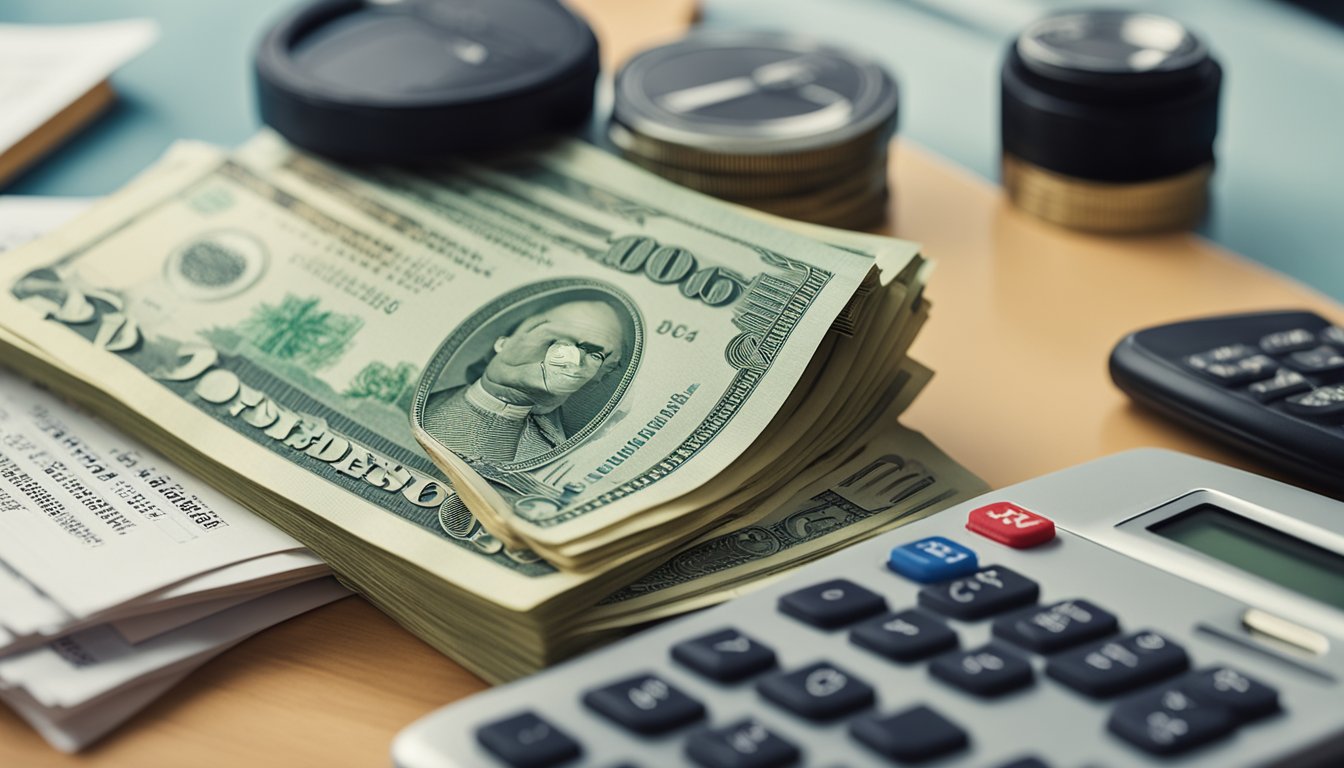
When it comes to buying a house in Singapore, the downpayment is just one of the many factors to consider. You also need to think about the long-term implications of your investment. Here are some things to keep in mind:
Refinancing Options
Your housing loan is a long-term commitment, and your financial situation may change over time. Refinancing your loan could help you save money in the long run. For example, you might be able to get a lower interest rate or switch from a variable rate to a fixed rate. Keep an eye on the market and consider refinancing if it makes sense for you.
Outstanding Housing Loan
If you have an outstanding housing loan, you may need to factor in the remaining balance when you sell the property. This is known as the outstanding loan amount, and it can affect your net proceeds from the sale. Be sure to keep track of your loan balance and factor it into your long-term plans.
Property Investment Strategies
Buying a house can be a smart investment, but it’s important to have a strategy in place. Consider factors such as location, property type, and potential rental income. You may also want to diversify your portfolio by investing in other types of real estate, such as commercial or industrial properties.
Overall, buying a house in Singapore is a big decision that requires careful consideration. Be sure to do your research and consult with a financial advisor if you need help making the right choice for your long-term goals.
Conclusion

Congratulations! You now have a better understanding of how much the downpayment for a house in Singapore is. It is important to note that the downpayment can vary based on the type of property you are purchasing and your nationality.
If you are a Singaporean purchasing a condo, you can expect to pay a downpayment of 25% of the purchase price, with 5% payable in cash. For example, if the condo is priced at S$1,000,000, you will need to pay S$250,000 as the downpayment, with S$50,000 payable in cash.
If you are a foreigner purchasing a condo, you can expect to pay a higher downpayment of 30% of the purchase price, with 5% payable in cash.
It is important to note that the downpayment required for HDB flats is lower than that of condos. For example, if you are purchasing an HDB flat with a value of S$500,000, you will need to pay a downpayment of S$25,000, with 10% payable in cash.
Remember to factor in other costs such as stamp duty, legal fees, and renovation costs when budgeting for your new home. It is always a good idea to speak to a financial advisor or mortgage broker to get a better understanding of your financial situation and options.
Overall, purchasing a property in Singapore can be a significant financial commitment, but with proper planning and budgeting, it is definitely achievable.
Frequently Asked Questions
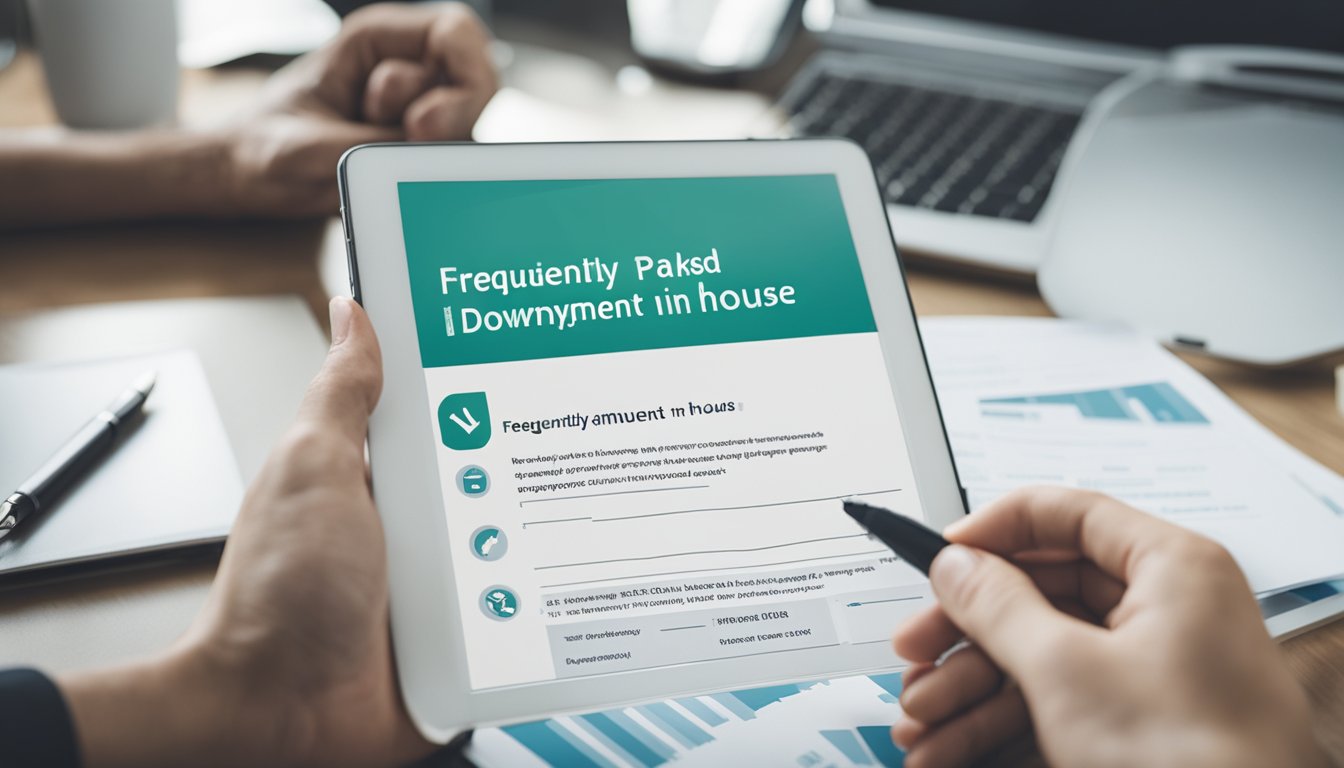
What’s the typical percentage required for a condo downpayment in Singapore?
The typical downpayment percentage for a condo in Singapore is 25% of the property’s purchase price. This means that if you are buying a condo for SGD 1 million, you will need to pay SGD 250,000 as a downpayment.
How can I calculate the downpayment needed for a private property purchase?
To calculate the downpayment needed for a private property purchase, you can use the following formula: Downpayment = Purchase price x Downpayment percentage. The downpayment percentage is usually 25% for condos and 20% for other types of private properties.
Are there any changes to the condo downpayment rates in 2023?
As of 2023, there are no changes to the condo downpayment rates in Singapore. The downpayment percentage remains at 25% of the property’s purchase price.
What’s the minimum cash portion I must pay upfront for a HDB resale flat?
The minimum cash portion you must pay upfront for a HDB resale flat is 5% of the purchase price or SGD 5,000, whichever is higher. This means that if you are buying a resale flat for SGD 400,000, you will need to pay at least SGD 20,000 upfront in cash.
Is there a difference between the downpayment rates for HDB and private properties?
Yes, there is a difference between the downpayment rates for HDB and private properties. The downpayment percentage for HDB flats is usually 10% for a bank loan and 20% for a HDB loan. Private properties, on the other hand, have a downpayment percentage of 20% to 25%.
What’s the least amount I need to fork out for my first home’s downpayment?
The least amount you need to fork out for your first home’s downpayment depends on the type of property you are buying. For HDB flats, the minimum downpayment is 5% of the purchase price or SGD 5,000, whichever is higher. For private properties, the minimum downpayment is 20% of the purchase price.

